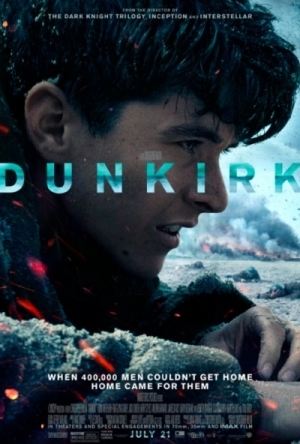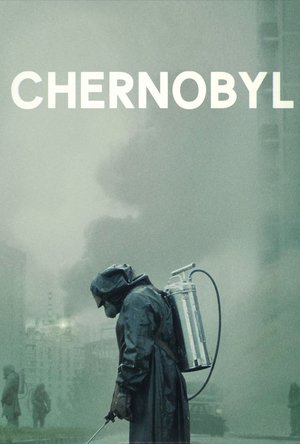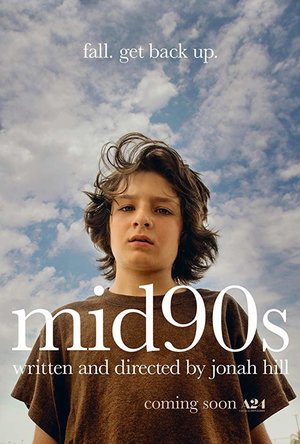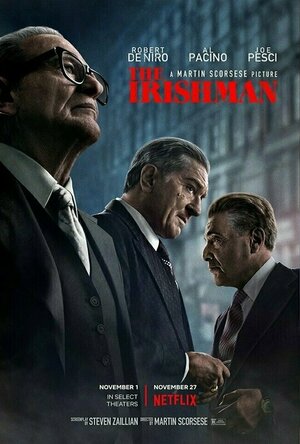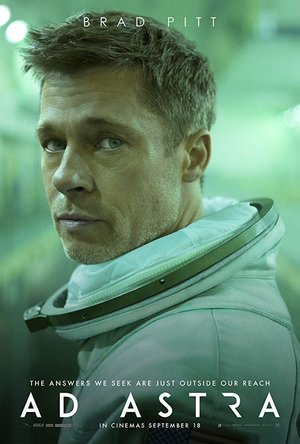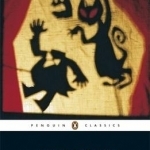Search
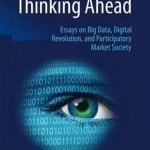
Thinking Ahead - Essays on Big Data, Digital Revolution, and Participatory Market Society
Book
The rapidly progressing digital revolution is now touching the foundations of the governance of...
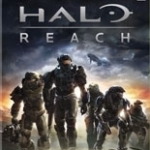
Halo Reach
Video Game
Because Halo is the best-selling Xbox franchise of all-time, the developers at Bungie had their work...

3rd Grade Non-Fiction Reading Comprehension
Education and Games
App
Improve your reading skills! 3rd Grade Non-Fiction Reading Comprehension is the most advanced...

Offline Swahili to English Language Dictionary
Education and Book
App
Our Swahili to English Translator Dictionary has an enormous number of words. It provides you with...
FearlessLover (27 KP) rated Dunkirk (2017) in Movies
Jul 31, 2017
Stunning cinea
It' s 1940, 400,000 allied troops are cornered and cut off on the beaches of Dunkirk; with the enemy closing in, and no cover or defence, they await annihilation or a miracle. We experience the moment as the characters do, without unnecessary exposition or dialogue! This proves quite the departure for Nolan; there is a lot here that owes more to silent cinema than anything else, but his images often say all that needs to be said.
An opening frame invites us to join a group of soldiers. Next, the loudest onslaught of gunfire kicks the film into another gear. We are given as much pause for thought as the soldiers we follow. We run with Tommy, played here by a Fionn Whitehead, and like him, we are aware of comrades falling dead next to us, but it is all panic and no time; we will lament their loss later. Set to the ticking of a watch, we feel Tommy's heart pounding with ours, and we know the tone for this audacious movie has been set.
We see the event from different perspectives and from within different time frames. Right now, not many directors can build momentum like Nolan. The jumping to and from different characters' point of view, the corkscrewing impression of the editing, events echoed and mirrored by Hans Zimmer's Shepherd's Tones and persistent, all enveloping score, acting at times more like sound design than music; it all results in a constant rise in tension, to the point of almost being exhaustive.
This said, the editing also serves another purpose. The "Miracle of Dunkirk" is a grand story, with every soldier, every pilot, and every civilian having their own point of view. Nolan wants us to build up an overall picture of the event purely through subjective experience, so of course we spend a tiring week with the terrified boys. Of course we spend a desperate day with a fisherman as he and his familial crew sail their way into action. Lastly, given the fuel constraints of the RAF, whose decisions had to be immediate and impulsive, always a choice between defending the beach or getting home, why would we spend any more that an edge-of-your-seat, quickly-cut hour in the cockpit of a Spitfire, as they do their duty and enter into dogfights to keep the German aircraft at bay? Each timeline is contracted or dilated to give everybody equal measure and importance, whilst staying true to and very much in their situation. Yes, this means we're kept on our toes; we have moments of confusion as timelines cross over and we see the same thing happening from another point of view, but as we head into the finale, as well as the aforementioned tension and release (which is just exciting cinema), we also get to see how, despite very different perspectives, everyone was working together, and how sacrifice and struggle for duty were par for the course for all involved, whether other people knew it or not. It is important that we the audience recognise this bigger picture, and as everything clicks together in an emotive final convergence of efforts, we not only see the justification for the techniques adopted, but struggle to imagine the story told another way. That is, at least, without going down a standard route, with objective storytelling employed.
A proper review not being complete without comment on the elephant in the room, it must be said that Harry Styles does not stand out like the proverbial sore thumb at all. Frankly, he carries his scenes with aplomb, and surely, following the Heath Ledger lesson, and now this, it is time we learned that, maybe, Christopher Nolan just knows what he's doing better that we do? As to the other big names, there are moments from that remain with me so long after having seen it: Kenneth Brannagh and Mark Rylance can say so much with so little, their faces and gestures doing the heavy lifting to deliver a lot of the human emotion, and it would appear Tom Hardy has Oscar-worthy eyes! You need see nothing more through the course of his drama to have a complete sense of the type of man his Farrier is. We talk about great acting and achieving realism through imagination, but with the knowledge that Nolan actually took everyone to Dunkirk, sank real ships, sailed real ships, flew real Spitfires overhead, employed real explosions on the beach, and even rejected green screen and CGI in favour of cardboard cut-outs, it seems imagination wasn't too necessary for these already consummate actors.
Nolan's principle fan base will be well prepared for what they get; but with his insistence on holding back from the audience any perspective not afforded his characters, ala 'Memento', some knowledge of the "Miracle Of Dunkirk" might put the more casual viewer in better stead. Regardless of which camp you fall into, or indeed of whether or not the movie does it for you, certain things are for sure: With no melodrama or cheese, and no superfluous fluff or emotional subterfuge, 'Dunkirk' is a purely experiential movie, a technical marvel of a war film unlike any other I can name. It also stands as a beacon in Nolan's career, characterised by his desire to cultivate an audience willing to keep up with him. And perhaps most importantly, this is a key moment in world history that is often overlooked; a disaster averted which, had it not been, would have seen the history books written very differently. That this event has been marshalled by a confident and sincere director, who has surely by now cemented his name alongside those of his own heroes, is reason enough to see 'Dunkirk'.
An opening frame invites us to join a group of soldiers. Next, the loudest onslaught of gunfire kicks the film into another gear. We are given as much pause for thought as the soldiers we follow. We run with Tommy, played here by a Fionn Whitehead, and like him, we are aware of comrades falling dead next to us, but it is all panic and no time; we will lament their loss later. Set to the ticking of a watch, we feel Tommy's heart pounding with ours, and we know the tone for this audacious movie has been set.
We see the event from different perspectives and from within different time frames. Right now, not many directors can build momentum like Nolan. The jumping to and from different characters' point of view, the corkscrewing impression of the editing, events echoed and mirrored by Hans Zimmer's Shepherd's Tones and persistent, all enveloping score, acting at times more like sound design than music; it all results in a constant rise in tension, to the point of almost being exhaustive.
This said, the editing also serves another purpose. The "Miracle of Dunkirk" is a grand story, with every soldier, every pilot, and every civilian having their own point of view. Nolan wants us to build up an overall picture of the event purely through subjective experience, so of course we spend a tiring week with the terrified boys. Of course we spend a desperate day with a fisherman as he and his familial crew sail their way into action. Lastly, given the fuel constraints of the RAF, whose decisions had to be immediate and impulsive, always a choice between defending the beach or getting home, why would we spend any more that an edge-of-your-seat, quickly-cut hour in the cockpit of a Spitfire, as they do their duty and enter into dogfights to keep the German aircraft at bay? Each timeline is contracted or dilated to give everybody equal measure and importance, whilst staying true to and very much in their situation. Yes, this means we're kept on our toes; we have moments of confusion as timelines cross over and we see the same thing happening from another point of view, but as we head into the finale, as well as the aforementioned tension and release (which is just exciting cinema), we also get to see how, despite very different perspectives, everyone was working together, and how sacrifice and struggle for duty were par for the course for all involved, whether other people knew it or not. It is important that we the audience recognise this bigger picture, and as everything clicks together in an emotive final convergence of efforts, we not only see the justification for the techniques adopted, but struggle to imagine the story told another way. That is, at least, without going down a standard route, with objective storytelling employed.
A proper review not being complete without comment on the elephant in the room, it must be said that Harry Styles does not stand out like the proverbial sore thumb at all. Frankly, he carries his scenes with aplomb, and surely, following the Heath Ledger lesson, and now this, it is time we learned that, maybe, Christopher Nolan just knows what he's doing better that we do? As to the other big names, there are moments from that remain with me so long after having seen it: Kenneth Brannagh and Mark Rylance can say so much with so little, their faces and gestures doing the heavy lifting to deliver a lot of the human emotion, and it would appear Tom Hardy has Oscar-worthy eyes! You need see nothing more through the course of his drama to have a complete sense of the type of man his Farrier is. We talk about great acting and achieving realism through imagination, but with the knowledge that Nolan actually took everyone to Dunkirk, sank real ships, sailed real ships, flew real Spitfires overhead, employed real explosions on the beach, and even rejected green screen and CGI in favour of cardboard cut-outs, it seems imagination wasn't too necessary for these already consummate actors.
Nolan's principle fan base will be well prepared for what they get; but with his insistence on holding back from the audience any perspective not afforded his characters, ala 'Memento', some knowledge of the "Miracle Of Dunkirk" might put the more casual viewer in better stead. Regardless of which camp you fall into, or indeed of whether or not the movie does it for you, certain things are for sure: With no melodrama or cheese, and no superfluous fluff or emotional subterfuge, 'Dunkirk' is a purely experiential movie, a technical marvel of a war film unlike any other I can name. It also stands as a beacon in Nolan's career, characterised by his desire to cultivate an audience willing to keep up with him. And perhaps most importantly, this is a key moment in world history that is often overlooked; a disaster averted which, had it not been, would have seen the history books written very differently. That this event has been marshalled by a confident and sincere director, who has surely by now cemented his name alongside those of his own heroes, is reason enough to see 'Dunkirk'.
Andy K (10823 KP) rated Chernobyl in TV
Oct 6, 2019
No words...
Every once in a while, a piece of cinema comes along so profound, epic, chilling, horrible, emotional, disgusting, jarring, magnificent and wondrous it completely takes my breathe away. When I was a child it was films like E.T., Return of the Jedi and Raiders of the lost Ark. Since becoming an adult, it has changed to movies like Schindler's List, 2001: A Space Odyssey, Requiem For A Dream and now Chernobyl.
This five part HBO series not only accounts for the immediate aftermath of the disaster, but shows the relatively unknown sagas of those people who were just doing their jobs not knowing their heroism and ultimate sacrifice probably saved millions of lives and maybe the entire planet Earth.
The men in the control room of the Chernobyl nuclear power plant did not know what just happened. They heard an explosion and then thought there was a fire on the roof of one of the buildings. Residents in the nearly town went out to see the spectacle taking their children and stood on a nearby bridge so they could see. Those men with the local fire department were called in the deal with the fire and quickly arrived to see the devastation they faced. Little did they know most of them were doomed with this assignment.
Soon after, nuclear experts are called in to formulate a plan to not only contain and extinguish the atomic blaze, but also to contain the radiation which the wind is carrying to neighboring countries. Proud Russian state officials also downplay the situation to the rest of the world and are wary to ask for outside assistance not wanting to show weakness.
After the plan to douse the flames in successful a new problem arises. Large water tanks which are supposed to be empty now contain water from the fireman's work which now could cause a nuclear megaton explosion killing millions and laying waste to an entire region of the Earth. A plan is also forged to deal with this new development.
Meanwhile, hospitals overrun with casualties are now forced to deal with unimaginable human suffering from those who took the worst of the radiation. Their agony and torture is some of the worst human suffrage short of war time in the history of the Earth. At the same time, a scientist and nuclear expert speaks with the men near death to assume a timeline and details of what took place during those fateful minutes before the disaster.
The monumental feat this mini-series puts to task is truly astonishing. The technical and historical detail filmmakers took to ensure accuracy is among the most impressive I have ever seen. The European locations used for filming were authentic to the last detail and the style of film was harsh and unrelenting. I watched all 5 episodes straight through as I couldn't wait to get to the next installment. As each ended, I was left with my jaw on the floor is amazement wear tears in my eyes and streaming down my face. Creator/writer Craig Mazin should be commended for his screenplay which is based on quite a lot of first-hand accounts of the situation from people who witnessed it.
Lead actors Jared Harris, Stellan Skarsgård and Emily Watson were all astonishing, especially Harris who portrayed Valery Legasov with such conviction, you as the audience were outraged and sympathetic to his role in this ordeal.
The human suffering portrayed onscreen through the use of remarkable make up effects were so real there were several points I had to stop the film just so I could catch my breath. I was so emotional while watching this masterpiece I feel now like a changed person after just having witnessed something as magic as this perfect piece of filmmaking.
I was so enamored with this production I watched all the making of material afterwards and a documentary about the real events including some of the real graphic patient images that I will never forget.
Hopefully, this will be shown in schools in the future and future generations will continue to learn about the Chernobyl catastrophe as a symbol of human arrogance so that it will never be repeated.
This five part HBO series not only accounts for the immediate aftermath of the disaster, but shows the relatively unknown sagas of those people who were just doing their jobs not knowing their heroism and ultimate sacrifice probably saved millions of lives and maybe the entire planet Earth.
The men in the control room of the Chernobyl nuclear power plant did not know what just happened. They heard an explosion and then thought there was a fire on the roof of one of the buildings. Residents in the nearly town went out to see the spectacle taking their children and stood on a nearby bridge so they could see. Those men with the local fire department were called in the deal with the fire and quickly arrived to see the devastation they faced. Little did they know most of them were doomed with this assignment.
Soon after, nuclear experts are called in to formulate a plan to not only contain and extinguish the atomic blaze, but also to contain the radiation which the wind is carrying to neighboring countries. Proud Russian state officials also downplay the situation to the rest of the world and are wary to ask for outside assistance not wanting to show weakness.
After the plan to douse the flames in successful a new problem arises. Large water tanks which are supposed to be empty now contain water from the fireman's work which now could cause a nuclear megaton explosion killing millions and laying waste to an entire region of the Earth. A plan is also forged to deal with this new development.
Meanwhile, hospitals overrun with casualties are now forced to deal with unimaginable human suffering from those who took the worst of the radiation. Their agony and torture is some of the worst human suffrage short of war time in the history of the Earth. At the same time, a scientist and nuclear expert speaks with the men near death to assume a timeline and details of what took place during those fateful minutes before the disaster.
The monumental feat this mini-series puts to task is truly astonishing. The technical and historical detail filmmakers took to ensure accuracy is among the most impressive I have ever seen. The European locations used for filming were authentic to the last detail and the style of film was harsh and unrelenting. I watched all 5 episodes straight through as I couldn't wait to get to the next installment. As each ended, I was left with my jaw on the floor is amazement wear tears in my eyes and streaming down my face. Creator/writer Craig Mazin should be commended for his screenplay which is based on quite a lot of first-hand accounts of the situation from people who witnessed it.
Lead actors Jared Harris, Stellan Skarsgård and Emily Watson were all astonishing, especially Harris who portrayed Valery Legasov with such conviction, you as the audience were outraged and sympathetic to his role in this ordeal.
The human suffering portrayed onscreen through the use of remarkable make up effects were so real there were several points I had to stop the film just so I could catch my breath. I was so emotional while watching this masterpiece I feel now like a changed person after just having witnessed something as magic as this perfect piece of filmmaking.
I was so enamored with this production I watched all the making of material afterwards and a documentary about the real events including some of the real graphic patient images that I will never forget.
Hopefully, this will be shown in schools in the future and future generations will continue to learn about the Chernobyl catastrophe as a symbol of human arrogance so that it will never be repeated.
Emma @ The Movies (1786 KP) rated Mid90s (2018) in Movies
Jun 22, 2019 (Updated Sep 25, 2019)
At 1 hour 25 minutes you'd be forgiven for thinking this would be a brief affair, but if you're not into it then this 85-minute film is agonisingly long.
Going into this the only thing I knew about this film was that it was directed by Jonah Hill, and I like him so that felt like something positive.
31 people had booked to see this preview at my Cineworld, I think there were maybe 10 of us that showed up. I have to say that there wasn't a lot of enthusiasm from any of us until it was time to leave.
Kudos on going with the 4:3 look on the screen and the grainier quality on the filming (I'm sure there are technical terms for that but I don't know them!) That combined with accurate costumes and settings to really take you back to the 90s. I found the smaller aspect to be rather distracting on the big screen though. I watch 4:3 a lot at home on my widescreen TV without it seeming odd, perhaps this is just one of those things, I go so often that I'm probably just expecting it to fill the whole screen.
The film starts with a particularly jarring scene, and while I don't have an issue with that shock impact I don't like that there's no context. You can infer things later on, but at no point do you explicitly find out the reason behind some of the shocking scenes. The film feels much more like we've been plonked down into his life rather than learning about it.
It's difficult to sum up how I feel about the characters.
Sunny Suljic is fine in the main role but there wasn't anything that wowed me from the role. That's no slur on the acting, I just didn't feel that the dialogue or story gave us more than a glance at his life.
Ray came across as the strongest out of all the skaters, we see a few different aspects of him and he gets a proper chance to open up. Had all the characters had this opportunity then I think we'd have had something much more interesting... but then teenage boys aren't notoriously fans of opening up emotionally on screen unless we're in a romantic film.
Those of you who read my reviews will know how I feel about Lucas Hedges, that is to say, I don't really get it. This role offers little backstory apart from the fact that he clearly has a long passion for beating the crap out of his brother, Stevie. Despite my growing indifference for him I feel like Hedges wasn't given enough time in the movie. I can see why he wasn't, Ian is hyper-aggressive and a very threatening presence so having more of him would have changed the dynamic a lot. Having more of him though might have allowed us to understand him a little bit more and take away some of the unanswered questions at the end of the film.
There are a lot of scenes with drug use and alcohol, and I can see those being relevant to the story, but the "sex" scene was uncomfortable and really didn't feel like it fit in at all. From the moment you see it coming to the point where the boys are prying out details of the encounter I sat there wondering why. Why it needed to be there and why the script was just so bad through it.
The ending was the only part of the film that actually made me feel anything for the characters and the events. That in itself is quite an achievement being that you can tell exactly what is coming. The way the final event is handled was visually striking and leads us into a moment where all the characters get to show something that finally feels like genuine emotion. I think it says a lot that the most effective bits of the film had no dialogue in them. The events at the end of this film saved Mid90s from getting one of the lowest ratings in my reviewing history.
I'd say that had they given over an extra 20 minutes to better character development then this would have been better, but I worry that an extra 20 minutes would just have made the event even more excruciating.
What you should do
I'm sure this has it's audience somewhere, after all, people seem to be raving about it. Sadly I am not that audience and I really can't recommend this to anyone.
Movie thing you wish you could take home
I love the idea of making customer skateboards.
Going into this the only thing I knew about this film was that it was directed by Jonah Hill, and I like him so that felt like something positive.
31 people had booked to see this preview at my Cineworld, I think there were maybe 10 of us that showed up. I have to say that there wasn't a lot of enthusiasm from any of us until it was time to leave.
Kudos on going with the 4:3 look on the screen and the grainier quality on the filming (I'm sure there are technical terms for that but I don't know them!) That combined with accurate costumes and settings to really take you back to the 90s. I found the smaller aspect to be rather distracting on the big screen though. I watch 4:3 a lot at home on my widescreen TV without it seeming odd, perhaps this is just one of those things, I go so often that I'm probably just expecting it to fill the whole screen.
The film starts with a particularly jarring scene, and while I don't have an issue with that shock impact I don't like that there's no context. You can infer things later on, but at no point do you explicitly find out the reason behind some of the shocking scenes. The film feels much more like we've been plonked down into his life rather than learning about it.
It's difficult to sum up how I feel about the characters.
Sunny Suljic is fine in the main role but there wasn't anything that wowed me from the role. That's no slur on the acting, I just didn't feel that the dialogue or story gave us more than a glance at his life.
Ray came across as the strongest out of all the skaters, we see a few different aspects of him and he gets a proper chance to open up. Had all the characters had this opportunity then I think we'd have had something much more interesting... but then teenage boys aren't notoriously fans of opening up emotionally on screen unless we're in a romantic film.
Those of you who read my reviews will know how I feel about Lucas Hedges, that is to say, I don't really get it. This role offers little backstory apart from the fact that he clearly has a long passion for beating the crap out of his brother, Stevie. Despite my growing indifference for him I feel like Hedges wasn't given enough time in the movie. I can see why he wasn't, Ian is hyper-aggressive and a very threatening presence so having more of him would have changed the dynamic a lot. Having more of him though might have allowed us to understand him a little bit more and take away some of the unanswered questions at the end of the film.
There are a lot of scenes with drug use and alcohol, and I can see those being relevant to the story, but the "sex" scene was uncomfortable and really didn't feel like it fit in at all. From the moment you see it coming to the point where the boys are prying out details of the encounter I sat there wondering why. Why it needed to be there and why the script was just so bad through it.
The ending was the only part of the film that actually made me feel anything for the characters and the events. That in itself is quite an achievement being that you can tell exactly what is coming. The way the final event is handled was visually striking and leads us into a moment where all the characters get to show something that finally feels like genuine emotion. I think it says a lot that the most effective bits of the film had no dialogue in them. The events at the end of this film saved Mid90s from getting one of the lowest ratings in my reviewing history.
I'd say that had they given over an extra 20 minutes to better character development then this would have been better, but I worry that an extra 20 minutes would just have made the event even more excruciating.
What you should do
I'm sure this has it's audience somewhere, after all, people seem to be raving about it. Sadly I am not that audience and I really can't recommend this to anyone.
Movie thing you wish you could take home
I love the idea of making customer skateboards.
Bob Mann (459 KP) rated The Irishman (2019) in Movies
Jan 20, 2020
An endurance test but a great endurance test
Martin Scorsese made a lot of enemies recently with his rant against the superficiality of the Marvel movies. But you can hardly argue that his latest film is superficial. We see the mobster Frank Sheeran (Robert De Niro) in his old people's home wistfully recalling his past life. Through flashback we go back to times as early as his service in World War II, where he learned to kill other men without a second thought.
Later, back in Philadelphia, Sheeran has a chance meeting with mob-leader Russell Buffalino (Joe Pesci) and Buffalino hires him as a hit man. It's a working relationship and friendship that is going to last a lifetime.... however long that may be in this business! But it also brings Sheeran into a relationship with union leader Jimmy Hoffa (Al Pacino). And those of you with any knowledge of the history of Jimmy Hoffa (or remember that scene in "Bruce Almighty"!) will recall what happened to him!
One of the issues with these sort of films is that it is impossible (unless you are reading this as a borderline psycho) to form any sort of empathetic relationship with any of the characters. It's horrifying that this is based on a true story: you'd really like to assume that all of this sort of stuff was solely on the pages of tacky crime novels, and not reality.
The horror of Sheeran's actions are neatly reflected by screenwriter Steven Zaillian ("Schindler's List", "Clear and Present Danger") in the impact on his family, particularly on his impressionable young daughter Peggy (Lucy Gallina). Only when he is old and grey can Peggy (now Anna Paquin) vent at her father for the damage done.
The "youngification" work on De Niro and Pesci is really essential for the film to work. Finding a younger actor to play either of these iconic actors would have been a stretch. Here it's very well done. But I will again suggest that we are probably another ten years of technology advancement away from removing the "uncanny valley" effect from scenes like this. It just doesn't quite work for me for a reason I can't put my finger on.
After the career nadir of "Dirty Grandpa" it looked like Robert De Niro might have nothing but bread commercials and dog-food ads to look forward to. However, within three months we've had a resurgence of form: his great performance in "Joker" and now this. Of course, this is a role that he can play in his sleep. And I suspect that might count against him in the Oscar/Bafta season. But its undeniably a great performance.
Joe Pesci (famously mocked as "Baby Yoda" by Ricky Gervais in his hilarious Golden Globe roasting) and Al Pacino are also great, with Pacino being particular impressive as the fanatically focused union boss unable to see the danger he is in. "It is what it is" repeats Sheeran over and over again to deaf ears. A memorable scene.
Again Zaillian's script is brilliant in creating an impossibly tense triangular friendship between the three men. His family love Hoffa and dislike/distrust Buffalino. When the triangle gets stretched to breaking point, and a link needs to be broken, which way will Sheeran jump?
For me, good movies should be seen in the cinema. But I missed its short (to make it Oscar-worthy) release so had to catch it up on the small(-er) screen. Cinemas seem reluctant to stick an "interval" in programmes these days: never quite sure why, since most movie-goers if we are talking a 2 hour+ movie might welcome a loo-break, and the cinema could also sell more ice-cream! But at three and a half hours, a cinema trip would be a bladder-testing challenge for sure. So this is one that I wasn't unhappy to use the pause button on!
It's a superbly constructed movie and well deserved its place on the Oscars "Best Movie" shortlist. It's tense, dramatic and has enough variety of people being shot in the head to make it ghoulishly watchable.
However, while I can appreciate the technical art of the film, and I'm delighted I got to see it, a top film for me needs to be one I would reach for on my DVD rack (spot the old-fashinoned git) for multiple watches. And for all its worthiness, this doesn't really fit the bill.
(For the full graphical review, please check out One Mann's Movies at https://bob-the-movie-man.com/2020/01/20/one-manns-movies-film-review-the-irishman-2019/ ).
Later, back in Philadelphia, Sheeran has a chance meeting with mob-leader Russell Buffalino (Joe Pesci) and Buffalino hires him as a hit man. It's a working relationship and friendship that is going to last a lifetime.... however long that may be in this business! But it also brings Sheeran into a relationship with union leader Jimmy Hoffa (Al Pacino). And those of you with any knowledge of the history of Jimmy Hoffa (or remember that scene in "Bruce Almighty"!) will recall what happened to him!
One of the issues with these sort of films is that it is impossible (unless you are reading this as a borderline psycho) to form any sort of empathetic relationship with any of the characters. It's horrifying that this is based on a true story: you'd really like to assume that all of this sort of stuff was solely on the pages of tacky crime novels, and not reality.
The horror of Sheeran's actions are neatly reflected by screenwriter Steven Zaillian ("Schindler's List", "Clear and Present Danger") in the impact on his family, particularly on his impressionable young daughter Peggy (Lucy Gallina). Only when he is old and grey can Peggy (now Anna Paquin) vent at her father for the damage done.
The "youngification" work on De Niro and Pesci is really essential for the film to work. Finding a younger actor to play either of these iconic actors would have been a stretch. Here it's very well done. But I will again suggest that we are probably another ten years of technology advancement away from removing the "uncanny valley" effect from scenes like this. It just doesn't quite work for me for a reason I can't put my finger on.
After the career nadir of "Dirty Grandpa" it looked like Robert De Niro might have nothing but bread commercials and dog-food ads to look forward to. However, within three months we've had a resurgence of form: his great performance in "Joker" and now this. Of course, this is a role that he can play in his sleep. And I suspect that might count against him in the Oscar/Bafta season. But its undeniably a great performance.
Joe Pesci (famously mocked as "Baby Yoda" by Ricky Gervais in his hilarious Golden Globe roasting) and Al Pacino are also great, with Pacino being particular impressive as the fanatically focused union boss unable to see the danger he is in. "It is what it is" repeats Sheeran over and over again to deaf ears. A memorable scene.
Again Zaillian's script is brilliant in creating an impossibly tense triangular friendship between the three men. His family love Hoffa and dislike/distrust Buffalino. When the triangle gets stretched to breaking point, and a link needs to be broken, which way will Sheeran jump?
For me, good movies should be seen in the cinema. But I missed its short (to make it Oscar-worthy) release so had to catch it up on the small(-er) screen. Cinemas seem reluctant to stick an "interval" in programmes these days: never quite sure why, since most movie-goers if we are talking a 2 hour+ movie might welcome a loo-break, and the cinema could also sell more ice-cream! But at three and a half hours, a cinema trip would be a bladder-testing challenge for sure. So this is one that I wasn't unhappy to use the pause button on!
It's a superbly constructed movie and well deserved its place on the Oscars "Best Movie" shortlist. It's tense, dramatic and has enough variety of people being shot in the head to make it ghoulishly watchable.
However, while I can appreciate the technical art of the film, and I'm delighted I got to see it, a top film for me needs to be one I would reach for on my DVD rack (spot the old-fashinoned git) for multiple watches. And for all its worthiness, this doesn't really fit the bill.
(For the full graphical review, please check out One Mann's Movies at https://bob-the-movie-man.com/2020/01/20/one-manns-movies-film-review-the-irishman-2019/ ).
Gareth von Kallenbach (980 KP) rated Ad Astra (2019) in Movies
Sep 16, 2019
My first experience in IMAX was at the IMAX theater at the Grand Canyon. This was before IMAX theaters could easily be found within easy driving distance in most large cities. The movie, which interestingly still is showing today from those early years took viewers on the magical journey through the Grand Canyon. Throwing in a bit of history, with incredible visages, viewers could experience the canyon without ever hiking within its depths. It may seem odd to compare a big budget title like Ad Astra written and directed by James Gray (The Immigrant / The Lost City of Z) to a short thirty-minute experience film about the Grand Canyon, but both are equally awe inspiring and beautiful if experienced in the same way.
Ad Astra features Brad Pitt as Astronaut Roy McBride, a film that takes place in the not so distant future where the moon has become a commercialized tourist destination. A place where outside the safe tourist zones corporations fight for control of resources, and convoys are regularly ransacked by pirates looking to make a quick buck off the wares they are able to obtain. Mars has become a staging location for deep exploration ships hoping to discover if intelligent life exists outside our solar system.
Strange power surges begin to emanate deep within the galaxy, threatening to destroy everything in their path (Earth not excluded) and the top scientist are brought together to identify the threat and propose a theory to stop it. Roy McBride after suffering a near fatal fall from aboard a space station is brought into a top-secret meeting to discuss these surges. It is in this meeting that Roy is informed that the surges appear to be manifesting near Neptune and even more interestingly they are identified as anti-matter surges that are being generated from a ship that Roy’s father Clifford (Tommy Lee Jones) was in charge of nearly 29 years ago. The mission was a search for extra terrestrial life that Clifford was overseeing and presumed dead after Earth had lost contact with his ship. Roy must put his personal feelings aside regarding his father and must travel to the outer reaches of our solar system to put a stop to the surges, in any way possible.
Ad Astra is an incredible achievement in cinematography. The visions of the moon, mars and the numerous rockets taken to get there are spectacular. Much like the Grand Canyon film I spoke of earlier, in IMAX Ad Astra gives you a front row seat exploring the solar system as we know it. It takes a realistic approach while not bogging the viewers in all the technical details that would be necessary to achieve this flight. You would be doing yourself a disservice to see this film on any but the largest of movie screens. While it might be an acceptable experience in a normal theater, much of the grandiose vistas and beautiful sets would be wasted. This is not a movie to wait for on Netflix if you have any interest in seeing it at all.
From a story perspective, there isn’t a whole lot to tell. Brad Pitt brings his amazing acting abilities to a film that features more inner dialogue to himself, then to others on the screen. It is reminiscent to the original Dune movie from the 80s combined with 2001: A space odyssey. For a movie that literally is about a voyage to deep space, there are some scenes sprinkled throughout that provide some action and even a bit of suspense. Supporting characters such as Tommy Lee Jones and Donald Sutherland provide outstanding performances, even if their screen time is extremely limited. Liv Tyler once again reprises a role similar to the one from Armageddon as the reluctant wife of a man who is tasked with saving the world.
Ad Astra is a cinematic experience, the story alone is passable if not particularly quick moving and at time rarely engaging. However, when you combine this with the technological wizardry used to bring the Solar System to life it makes for an adventure that certainly lives up to the hype and will delight your visual senses. If you’ve ever dreamed of what it would be like to live on the moon or adventure into the stars, then Ad Astra might just be the closest we ever get in our lifetime. It’s beautiful, deadly and overall an achievement to behold, just make sure you see it on the biggest screen you can.
4 out of 5 stars
Ad Astra features Brad Pitt as Astronaut Roy McBride, a film that takes place in the not so distant future where the moon has become a commercialized tourist destination. A place where outside the safe tourist zones corporations fight for control of resources, and convoys are regularly ransacked by pirates looking to make a quick buck off the wares they are able to obtain. Mars has become a staging location for deep exploration ships hoping to discover if intelligent life exists outside our solar system.
Strange power surges begin to emanate deep within the galaxy, threatening to destroy everything in their path (Earth not excluded) and the top scientist are brought together to identify the threat and propose a theory to stop it. Roy McBride after suffering a near fatal fall from aboard a space station is brought into a top-secret meeting to discuss these surges. It is in this meeting that Roy is informed that the surges appear to be manifesting near Neptune and even more interestingly they are identified as anti-matter surges that are being generated from a ship that Roy’s father Clifford (Tommy Lee Jones) was in charge of nearly 29 years ago. The mission was a search for extra terrestrial life that Clifford was overseeing and presumed dead after Earth had lost contact with his ship. Roy must put his personal feelings aside regarding his father and must travel to the outer reaches of our solar system to put a stop to the surges, in any way possible.
Ad Astra is an incredible achievement in cinematography. The visions of the moon, mars and the numerous rockets taken to get there are spectacular. Much like the Grand Canyon film I spoke of earlier, in IMAX Ad Astra gives you a front row seat exploring the solar system as we know it. It takes a realistic approach while not bogging the viewers in all the technical details that would be necessary to achieve this flight. You would be doing yourself a disservice to see this film on any but the largest of movie screens. While it might be an acceptable experience in a normal theater, much of the grandiose vistas and beautiful sets would be wasted. This is not a movie to wait for on Netflix if you have any interest in seeing it at all.
From a story perspective, there isn’t a whole lot to tell. Brad Pitt brings his amazing acting abilities to a film that features more inner dialogue to himself, then to others on the screen. It is reminiscent to the original Dune movie from the 80s combined with 2001: A space odyssey. For a movie that literally is about a voyage to deep space, there are some scenes sprinkled throughout that provide some action and even a bit of suspense. Supporting characters such as Tommy Lee Jones and Donald Sutherland provide outstanding performances, even if their screen time is extremely limited. Liv Tyler once again reprises a role similar to the one from Armageddon as the reluctant wife of a man who is tasked with saving the world.
Ad Astra is a cinematic experience, the story alone is passable if not particularly quick moving and at time rarely engaging. However, when you combine this with the technological wizardry used to bring the Solar System to life it makes for an adventure that certainly lives up to the hype and will delight your visual senses. If you’ve ever dreamed of what it would be like to live on the moon or adventure into the stars, then Ad Astra might just be the closest we ever get in our lifetime. It’s beautiful, deadly and overall an achievement to behold, just make sure you see it on the biggest screen you can.
4 out of 5 stars
Sass Perilla (36 KP) rated The Master and Margarita in Books
Aug 9, 2019
Worth a read? Yes. Worth a reread? Maybe not.
Contains spoilers, click to show
The Master and Magarita: Mikhail Bulgakov
Firstly, I didn’t intend to write an essay on this novel. However, once started I found I had a lot to say, and the more I thought about the plot and characters, the more ideas and parallels were sparked, so I am hopeful that the verbosity of this review can be forgiven.
At the risk of sounding both ignorant and uncultured, I found this novel (at least at first) bloody hard slog; not least because the Russian characters have three names, plus a nickname, plus a pun on their name (none of which work particularly well in translation and all of which sound rather similar to the English untrained ear). As an example- Ivan Nikolaevich Ponyrev (who seems to be referred to by any and all of these names) is also known as “Homeless” and “the poet” is a key character in the opening section of the novel. To further demonstrate: there are 17 different names that start with A that are used to refer to 15 different characters with Andreyevich used as the middle name of a bereaved uncle, who makes a journey from Kiev after his nephew is beheaded in a freak tram accident- and Andrey the buffet manager at a Moscow theatre. Clear as mud right? And that is before starting on similarly named characters with the initials M, P, L and S! At my last count there were 45 distinct characters, and I am fairly sure there will be some that I have missed. Hence, I did a lot of re-reading to work out exactly who was doing what to whom.
Additionally, I would suggest you need to be wary of the different translations. The distinct changes in meaning are subtle but important. To triangulate I had three versions at my disposal: Hugh Aplin’s translation (available for free on Kindle), the audiobook version translated by Richard Pevear and Larissa Volokhonsky (which I listened to simultaneously when reading the book to come to my own interpretation, and the subtitles for the Russian TV miniseries from 2005 when I gave up trying to work out who was who from name alone!
So those were my “technical” issues (if you like) with engaging with this novel, and this lack of clarity and understanding (and my own lack of contextual knowledge of Stalinist Russia) meant I missed many of the (what I am sure are hysterically funny to those in the know) satirical jokes in the opening section. That said, the random action and quick changes of focus, undercurrent of chaos in Moscow despite entrenched hierarchal structures and clear threat that (any) one could go missing at any time, for an unclear reason gave a clear insight into the mind and fears of a 1930s Russian citizen. No wonder it was available only in censored form for so long.
Despite these hardships, there were some genuinely laugh out loud moments in the first Moscow based part of the novel. The citizens have not lost their individuality, as they scrabble and fight for bank notes in the theatre, which are later revealed to be worthless. Nor have they lost their sense of pride and vanity, which we see in the female theatre goers, so desperate to attain the fashionable French couture (which later literally disappears from their bodies leaving semi-naked citizenesses desperately trying to cover themselves in a scene reminiscent of “Allo Allo” meets “Benny Hill”). When Professor Woland says his show will “expose” what the locals have failed to realise is that it is their (moral) shortcomings that are about to be revealed. The message is clearly, that no government can successfully legislate against human nature.
Oooh- and another fun fact, apparently Woland (later revealed- or perhaps is implied- to be Satan) was the inspiration to the Rolling Stones 1968 hit “Sympathy for the Devil”, well at least that is what my Google-Fu tells me.
Obviously, there were substantial hurdles to leap, however, I found by the second half of the novel, when we finally meet the eponymous characters, I had got in to the swing of things and begun to embrace the farcical surrealism of the novel.
The second “book” marks a change in tone, although it continues to cut away to scenes of Jesus’ sentencing by Pilate and execution (here known in the Aramaic form Yeshua). Ironically it is these scenes that are the most “real” and substantially human, as Pilate’s decision weighs head achingly heavily on him throughout. The Master and Margarita seem to be the only two characters fully invested in the authenticity of literature, and serve as a counterpoint to the heavily censored “monstrous” writing of Ivan and the rest of the writers’ union Massolit, more interested in fine dining and what their positions can do for them then the production of quality writing.
And it is Margarita’s journey of discovery and liberation from the stodgy, miserable societal expectations of that leads her back to her Master. Bulgakov mixes classical myth, Russian folklore and Bible stories to give us an impression of the timelessness of the central romance. As the worlds of communist Moscow and the inner worlds of the Master and Margarita collide, we are informed of the former’s desire to excuse all magic (and mischief) as the product of mass hypnosis, when the latter (and the reader) are fully aware of the spiritual significance and dimension of the events.
Clever, astute and in places laugh out loud funny, this novel none-the-less requires a level of dedication from the non-Russian speaking reader. Worth a read? Yes. Worth a re-read? Maybe not.
Firstly, I didn’t intend to write an essay on this novel. However, once started I found I had a lot to say, and the more I thought about the plot and characters, the more ideas and parallels were sparked, so I am hopeful that the verbosity of this review can be forgiven.
At the risk of sounding both ignorant and uncultured, I found this novel (at least at first) bloody hard slog; not least because the Russian characters have three names, plus a nickname, plus a pun on their name (none of which work particularly well in translation and all of which sound rather similar to the English untrained ear). As an example- Ivan Nikolaevich Ponyrev (who seems to be referred to by any and all of these names) is also known as “Homeless” and “the poet” is a key character in the opening section of the novel. To further demonstrate: there are 17 different names that start with A that are used to refer to 15 different characters with Andreyevich used as the middle name of a bereaved uncle, who makes a journey from Kiev after his nephew is beheaded in a freak tram accident- and Andrey the buffet manager at a Moscow theatre. Clear as mud right? And that is before starting on similarly named characters with the initials M, P, L and S! At my last count there were 45 distinct characters, and I am fairly sure there will be some that I have missed. Hence, I did a lot of re-reading to work out exactly who was doing what to whom.
Additionally, I would suggest you need to be wary of the different translations. The distinct changes in meaning are subtle but important. To triangulate I had three versions at my disposal: Hugh Aplin’s translation (available for free on Kindle), the audiobook version translated by Richard Pevear and Larissa Volokhonsky (which I listened to simultaneously when reading the book to come to my own interpretation, and the subtitles for the Russian TV miniseries from 2005 when I gave up trying to work out who was who from name alone!
So those were my “technical” issues (if you like) with engaging with this novel, and this lack of clarity and understanding (and my own lack of contextual knowledge of Stalinist Russia) meant I missed many of the (what I am sure are hysterically funny to those in the know) satirical jokes in the opening section. That said, the random action and quick changes of focus, undercurrent of chaos in Moscow despite entrenched hierarchal structures and clear threat that (any) one could go missing at any time, for an unclear reason gave a clear insight into the mind and fears of a 1930s Russian citizen. No wonder it was available only in censored form for so long.
Despite these hardships, there were some genuinely laugh out loud moments in the first Moscow based part of the novel. The citizens have not lost their individuality, as they scrabble and fight for bank notes in the theatre, which are later revealed to be worthless. Nor have they lost their sense of pride and vanity, which we see in the female theatre goers, so desperate to attain the fashionable French couture (which later literally disappears from their bodies leaving semi-naked citizenesses desperately trying to cover themselves in a scene reminiscent of “Allo Allo” meets “Benny Hill”). When Professor Woland says his show will “expose” what the locals have failed to realise is that it is their (moral) shortcomings that are about to be revealed. The message is clearly, that no government can successfully legislate against human nature.
Oooh- and another fun fact, apparently Woland (later revealed- or perhaps is implied- to be Satan) was the inspiration to the Rolling Stones 1968 hit “Sympathy for the Devil”, well at least that is what my Google-Fu tells me.
Obviously, there were substantial hurdles to leap, however, I found by the second half of the novel, when we finally meet the eponymous characters, I had got in to the swing of things and begun to embrace the farcical surrealism of the novel.
The second “book” marks a change in tone, although it continues to cut away to scenes of Jesus’ sentencing by Pilate and execution (here known in the Aramaic form Yeshua). Ironically it is these scenes that are the most “real” and substantially human, as Pilate’s decision weighs head achingly heavily on him throughout. The Master and Margarita seem to be the only two characters fully invested in the authenticity of literature, and serve as a counterpoint to the heavily censored “monstrous” writing of Ivan and the rest of the writers’ union Massolit, more interested in fine dining and what their positions can do for them then the production of quality writing.
And it is Margarita’s journey of discovery and liberation from the stodgy, miserable societal expectations of that leads her back to her Master. Bulgakov mixes classical myth, Russian folklore and Bible stories to give us an impression of the timelessness of the central romance. As the worlds of communist Moscow and the inner worlds of the Master and Margarita collide, we are informed of the former’s desire to excuse all magic (and mischief) as the product of mass hypnosis, when the latter (and the reader) are fully aware of the spiritual significance and dimension of the events.
Clever, astute and in places laugh out loud funny, this novel none-the-less requires a level of dedication from the non-Russian speaking reader. Worth a read? Yes. Worth a re-read? Maybe not.
